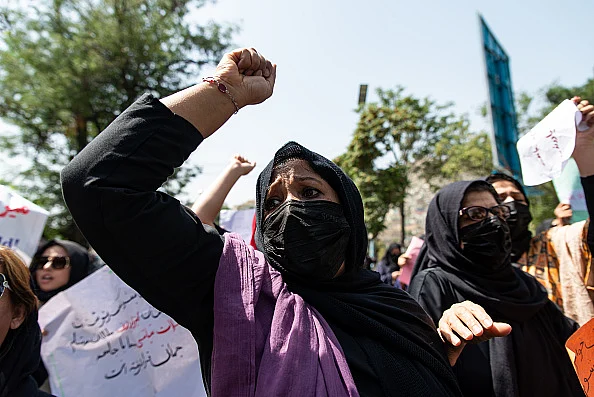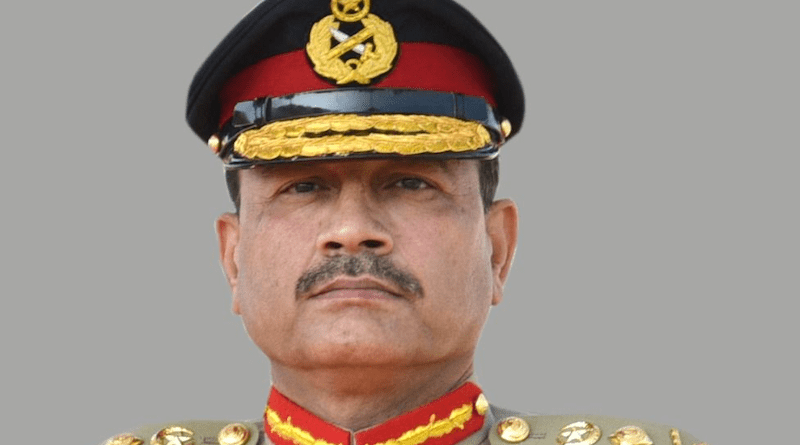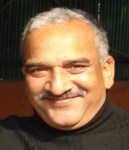The Taliban’s morality laws have severely constrained women’s fundamental human rights in Afghanistan. Heather Barr, Interim Deputy Women's Rights Director, Human Rights Watch, speaks to Outlook on what this means for women and girls in the country, and for the world
Avantika Mehta
Updated on: 10 September 2024

Life In Kabul On First Anniversary Of Taliban Takeover Photo: Getty Images
Q
How is HRW monitoring the situation in Afghanistan now?
A
In 2007- 2021, I lived in the country, in Kabul, when I first worked with the HRW. We were a team of two people; but now we have no one based in the country because it's not safe—we wouldn't be able to protect our staff or the people they interview. We also have seen that the United Nations (UN) is under an enormous amount of pressure, which makes it challenging for them to do their reporting although they still do reporting on human rights. We've just seen that the UN Rapporteur Richard Bennett was barred by the Taliban and we know that the media—both Afghan media and international media—have been under enormous pressure over the last three years, and the pressure keeps worsening.
Q
What sort of pressure are journalists, particularly female journalists, facing under the Taliban regime?
A
The Taliban has expelled a lot of international journalists from Afghanistan or blocked them from getting visas to return. I think it has disproportionately been women who report on women's rights and mostly journalists.
In the local media, Afghan journalists are under constant scrutiny and pressure and know that they have colleagues who have been arrested and tortured for covering topics that the Taliban didn't like or covering them in a way that the Taliban didn't like. This means that if you're an Afghan journalist, your options are that you work in a public way, but you have to be incredibly careful all the time that you end up really constrained in terms of what you can write. Or you operate secretly for an outlet that's based out of the country and that's obviously very dangerous.
In terms of the gender of the journalists, there are still some female journalists who are working; but they are doing so under incredible constraints that really make it impossible for them to fully do the job of reporting. I think some media outlets still have women working for them, but those women, for example must work from home, and may not be able to go out and do most of the reporting. There are also women who are working secretly—you can see reports particularly in these two outlets called Rukhshana and Zan, but I can't even imagine what sort of care and precautions they must have to take, and the fear they live under.
Q
The Guardian has recently published a report in collaboration with Rukhshana media, where they’ve confirmed with video evidence that the Taliban is using gang-rape as a torture method for women’s rights activists. How does the HRW view this?
A
It's incredibly disturbing and shocking. But, in a way, we shouldn't be shocked. One of the first thing the Taliban did was remove any structure that could provide any kind of accountability for human rights violations. They dismantled the Afghanistan Independent Human Rights Commission, the Ministry of Women's Affairs. There is nowhere left to go if you're being abused or your human rights are being violated. That means people who are in position of power—people who are running jails, running prisons, arresting people, detaining people—have total impunity.
Q
There had been some talk from the UN and Western countries particularly, that the Taliban would be obliged to behave under international law if they wanted to be a recognised government on the global stage. How has that played out?
A
That the Taliban were somehow going to be different and were going to abide by international law and Afghanistan's international obligations, was a hope that diplomats had because it saved their face—particularly American diplomats who had signed up for the Doha Agreements. I think you'd be hard pressed to find Afghan women who ever believed that for a moment.
The reason Afghan women didn't believe it is that they knew from their personal experience, from their families' experience, how the Taliban had behaved from 1996 to 2001 when they were in power the first time.
Not just that, they also knew what life was like for women and girls in parts of the country that were controlled by the Taliban when the Doha agreements were being signed. Life in those parts of the country was pretty much the same as it had been in 1996 to 2001.
It was really ‘magical thinking’ to believe that a new, different Taliban had come that was going to yield to international pressure and abide by human rights conventions. That was always a myth, which Afghan women did not swallow. And, here we are now, three years later; now, no one can really deny that the Taliban are as abusive as they ever were.

Heather Barr Photo: HRW website
Q
As a person watching the situation closely, and who has lived experience in the country, what do you think of the international community’s response to the crisis faced by Afghan women and girls at this point?
A
We still don't see anything resembling an adequate response to that crisis from the international community. We see States issuing statements. We saw the statement issued at the Security Council a few days ago, and some statements by individual states. These are valuable, but obviously they're not enough because they don't accomplish anything.
We've been really trying to talk to States and the UN about the fact that it's time for concrete steps to hold the Taliban accountable for the fact that their abuses are crimes and violations of Afghanistan's obligations under international law, not just bad behaviour.
Q
What sort of concrete steps can the international community take?
A
So, I'll talk about five concrete steps the international community could take:
The first is the International Criminal Court; which can bring charges for crimes including a crime that's called gender persecution. It's completely clear that Taliban leaders are engaging in the crime of gender persecution. Afghans have been waiting since 2006 for the ICC to act—that's how long international criminal court prosecutor has been looking into the situation in Afghanistan. That's too long. States who are members of the Rome statutes should be pushing ICC and saying: seriously, how much longer? When are you going to bring indictments? When are we going see arrest warrants for Taliban leaders? That would be an important step towards accountability.
The second measure is to approach the International Court of Justice. This court doesn't bring criminal charges, but States can bring cases against each other. One of the treaties under which States can bring a case against another is the Convention on the Elimination of All Forms of Discrimination Against Women (CEDAW).
There are 149 countries that could bring a case against the Taliban over its violations of (CEDAW); there are lawyers who have been looking for almost three years now for one or more States that would bring such a case and it's very frustrating that they haven't yet found one.
The third is the massive campaign by Afghan women's rights defenders for gender apartheid to be recognised as a crime under international law. There's a unique and time-bound opportunity to do that because States at the General Assembly are in the middle of considering a new potential treaty on crimes against humanity, and apartheid is already included in that draft treaty. Adding gender would just be amending the language that's already in the treaty.
The fourth thing I want to mention is that all the above suggestions—ICC, ICJ—are dependent on you having evidence of what's actually happening in the country, and it's become so difficult to capture that information. To be admissible in court as evidence, you have to gather information in very specific ways and there isn't anyone doing that right now in a systematic way. The Human Rights Council is convening again starting on September 9 in Geneva, and we've been asking, along with other human rights organisations (Afghan and international) for three and a half years now, for the UN to set up a new mechanism to collect and preserve evidence of crimes committed in Afghanistan.
This has been an ask for ours since the 2021 attack on the girls' school in Kabul happened. And, we will be making that ask again, this week in the human rights convention, and throughout the session, which is a month long (September 9 to October 11).
The fifth, is about refugees.
We saw this burst of activity of helping Afghans, and helping people to flee right after the Taliban took over. But it feels like a lot of countries are behaving asif they did their bit and now it's over. That's not the case, at all.
As this crackdown continues, there is a steady flow of women and girls who are reaching the conclusion that they cannot live in Afghanistan, that their only option to stay alive and continue their lives is to flee. There has to be pathways for them to be able to flee and reach safety, to be able to resettle. We've seen a growing number of countries that have said that they will automatically consider Afghan women and girls as a category of people who are facing persecution for the purposes of asylum claims, and that's a good thing.
But it's not enough because women and girls can't easily escape. To get help to those who need to escape there, there needs to be help for those who have made it out of Afghanistan but have not made it further than Pakistan or Iran. We know that they can't resettle safely in Pakistan or Iran because there are mass deportations happening in both countries, as well as abuses against Afghans who are just trying to live their lives in those countries. There needs to be a response that is much stronger and more compassionate and more respectful of the 1951 Refugees Convention.
Q
What do you see as India’s role in helping Afghanistan?
A
I've heard from lots of Afghan people who were students in India at the time of the takeover, who weren't able to get visas to come back to India so there's certainly more it can do. India has been a destination for a long time for Afghans who are looking for medical care, educational opportunities. I hope that people see that Afghans have enriched your society and contributed and so there's certainly room for India to be a place to receive lots of women and girls, particularly women and girls who are seeking education.
I hope that India's government is welcoming of Afghans. For most countries, there's much more they could be doing and I'm sure that's the case for India too.


